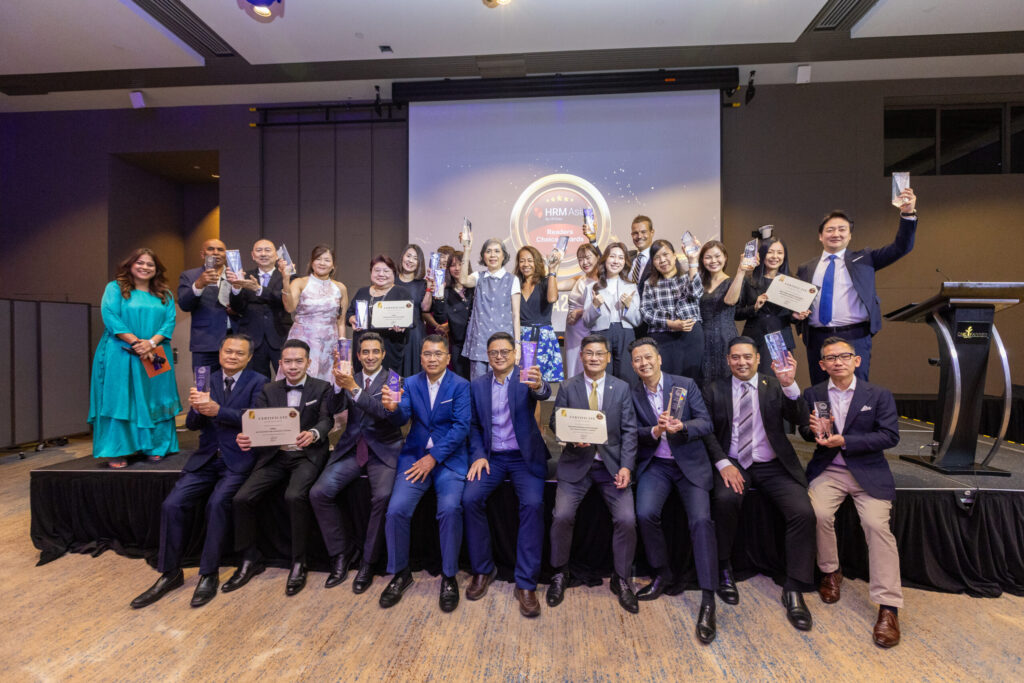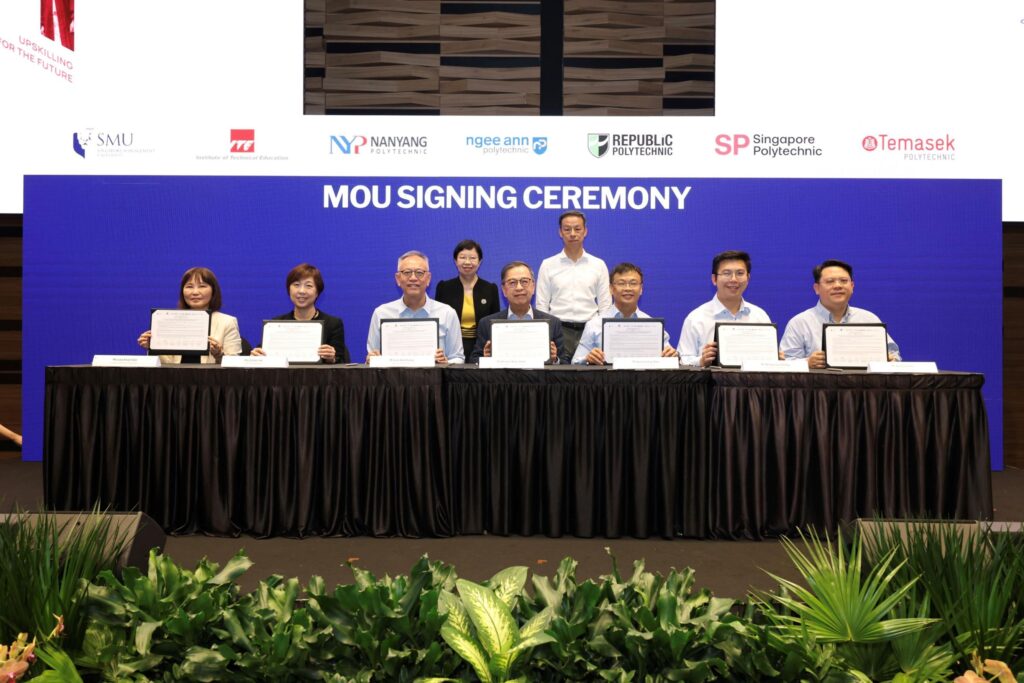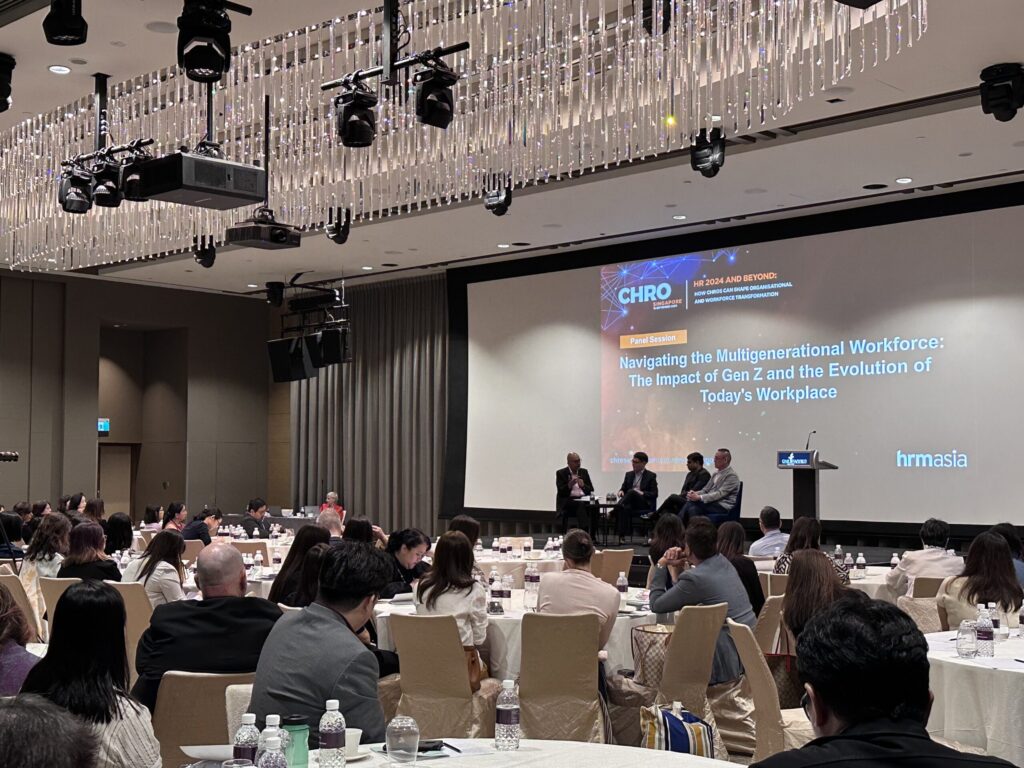Singapore salaries set to rise 4% in 2026, but real wage growth remains subdued: Mercer

While organisations in Singapore plan a 4% salary boost in 2026, economic pressures are expected to keep real wage growth modest.
Organisations in Singapore tightens AI governance to build trust in the 2026 workplace

As AI becomes central to work, ADP’s 2026 HR Trends Guide shows employers reshaping HR, skills strategies, and governance for trust.
Can workplaces remain “human” in the age of AI? Rothman & Roman seeks industry answers

Amid rising geopolitical tension, AI disruption, and workforce fatigue, organisations are rediscovering communication as the foundation of trust, belonging, and sustainable culture.
Cautious optimism marks Singapore’s workforce plans for early 2026

Organisations in Singapore are recalibrating hiring strategies for 2026 as economic pressures drive a more measured approach to workforce planning and expansion.
Singapore sees rising demand for digital-ESG talent as workforce expectations evolve

New regional insights reveal employees increasingly value meaningful work and development opportunities over pay, reshaping how organisations compete for talent.
Singapore’s workforce rewrites the career script

As uncertainty rises, employees in Singapore are reconsidering what matters most, with security, fulfilment and flexibility emerging as new career essentials.
Excellence in HR recognised at HRM Asia Readers’ Choice Awards 2025

The HR community gathered on December 4 as HRM Asia celebrated the Readers’ Choice Awards 2025 and honoured this year’s top-performing HR partners.
Organisations in Singapore turn cautious as costs climb and talent pressures intensify

Business confidence in Singapore is slipping as organisations confront escalating costs, global uncertainties and persistent workforce challenges heading into 2026.
Employees in Singapore lack flexible hours despite hybrid work trend

Employees in Singapore largely welcome return-to-office mandates, but gaps in flexible hours and workplace perks threaten retention and engagement.
AI reshapes workforce: Two-thirds of organisations expect steep decline in entry-level hiring

AI adoption is rapidly reshaping global workforces, slowing entry-level hiring and intensifying skills shortages as organisations race to redesign roles and reskill talent.
NWC guidelines push for wage flexibility and business transformation alongside mandated pay increases

The National Wages Council recommends pay increases of 5.5% to 7.5% for lower-wage workers in Singapore and encourages employers to adopt flexible pay structures and upskill employees.
Daily GenAI use linked to higher pay, productivity, and job security

Frequent GenAI users are seeing tangible benefits, reporting stronger performance and better career outcomes than non-users, PwC’s latest findings show.
New Workplace Fairness Act establishes legal path for discrimination claims

Parliament passes key Bill, bringing Singapore’s Workplace Fairness Act closer to launch with stronger discrimination protections and dispute safeguards.
After-work socials may not boost everyone’s morale, study finds

Invitations to team dinners and drinks can improve workplace connection for some, yet create anxiety for others, a new study shows.
SMU Academy forges new learning pathways with polytechnics and ITE to fast-track workforce upskilling

New SMU Academy MOU creates credit exemptions and progression routes, empowering polytechnic and ITE graduates to advance quickly in higher education.
Workplace conflicts drive Japan’s surge in mental health compensation claims

Japan’s mental health crisis deepens as record-high employee compensation claims reveal persistent stress and harassment despite progress on curbing overwork.
AsiaHRM and HRM Asia partner to elevate regional HR leadership dialogue

The Asia HR Leaders Live Series launches in partnership with HRM Asia, offering HR leaders regional insights and practical strategies.
CEOs in APAC double down on people and adaptability to navigate global instability

Leaders in Asia-Pacific show rising confidence, prioritising people, adaptability, and regional alliances to drive resilience.
Why time off may be the ultimate bonus for employee engagement

New research shows that rewarding employees with time off, rather than cash, makes them feel more valued, appreciated, and genuinely human.
No AI boss: Employees in Singapore demand human leadership despite tech embrace

Employees in Singapore welcome AI as a workplace partner but draw the line at machine management, highlighting the need for human-centred leadership.
Singaporeans see better career growth at home, but job security worries persist

Despite global mobility options, many Singaporeans believe the best career growth lies at home, even as concerns over job security persist.
Half of Singapore’s new hires are overseas as organisations accelerate global expansion

As organisations expand abroad, lean HR teams are increasingly turning to AI and automation to manage complex global operations.
Career stagnation pushing one-third of employees to job hunt, ADP warns

ADP’s new People at Work 2025 report finds that visibility and support, not skills, are key to unlocking career growth.
Global CEOs double down on AI and talent amid declining economic confidence

Falling confidence in the global economy prompts CEOs to prioritise AI adoption, talent expansion, and risk management strategies.
Jobseekers in South Korea face tighter age expectations despite longer paths to employment

Despite longer paths to employment, jobseekers in South Korea fear shrinking entry-level opportunities due to persistent age-related hiring expectations.
HRM Asia opens nominations for HR Tech Asia Awards 2026

Nominations are now open for the HR Tech Asia Awards 2026, recognising HR leaders, teams, and organisations driving innovation and excellence.
UOB commits to future-proofing workforce with major AI upskilling initiative

UOB is investing in bank-wide AI training, equipping employees with skills to thrive as automation and digital disruption accelerate.
Silicon Valley embraces ‘996’ work culture amid AI boom

In Silicon Valley’s AI boom, “996” work schedules are resurfacing, reflecting the industry’s longstanding tradition of intense work cultures.
The next era of HR: Why Singapore’s top leaders are rebuilding from the heart out

Secure your spot at CHRO Singapore 2025 and join HR leaders exploring AI, inclusion, and strategies for a future-ready workforce.
Singapore’s workforce battles burnout, highlighting need for stronger mental health support

Work-related stress affects roughly a third of Singapore’s workforce as the Ministry of Manpower pushes wider adoption of tools supporting mental wellbeing.
